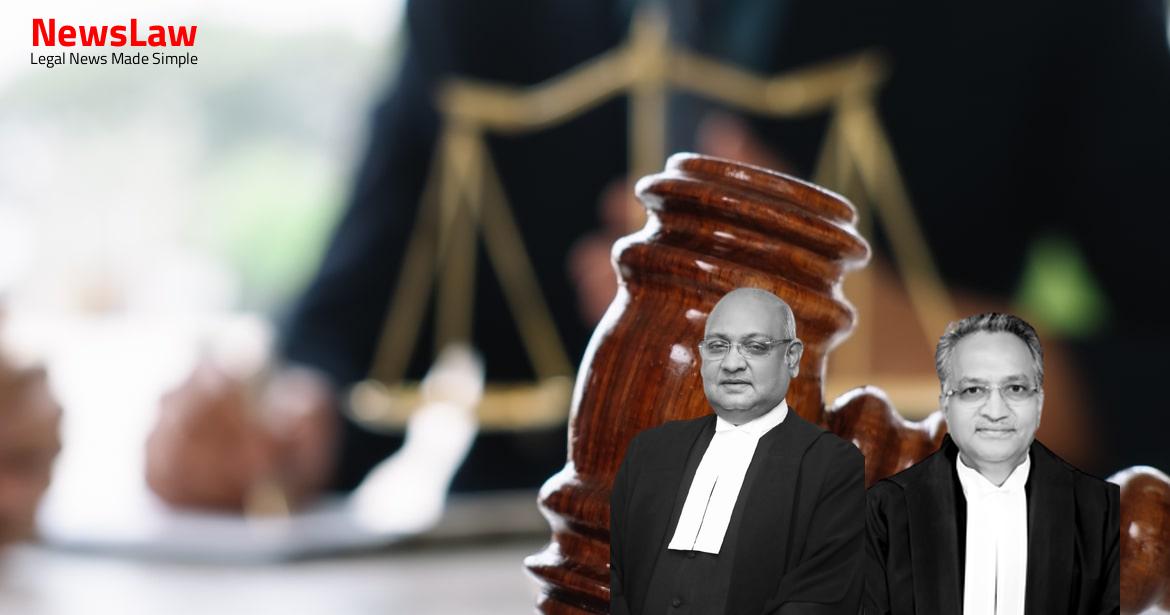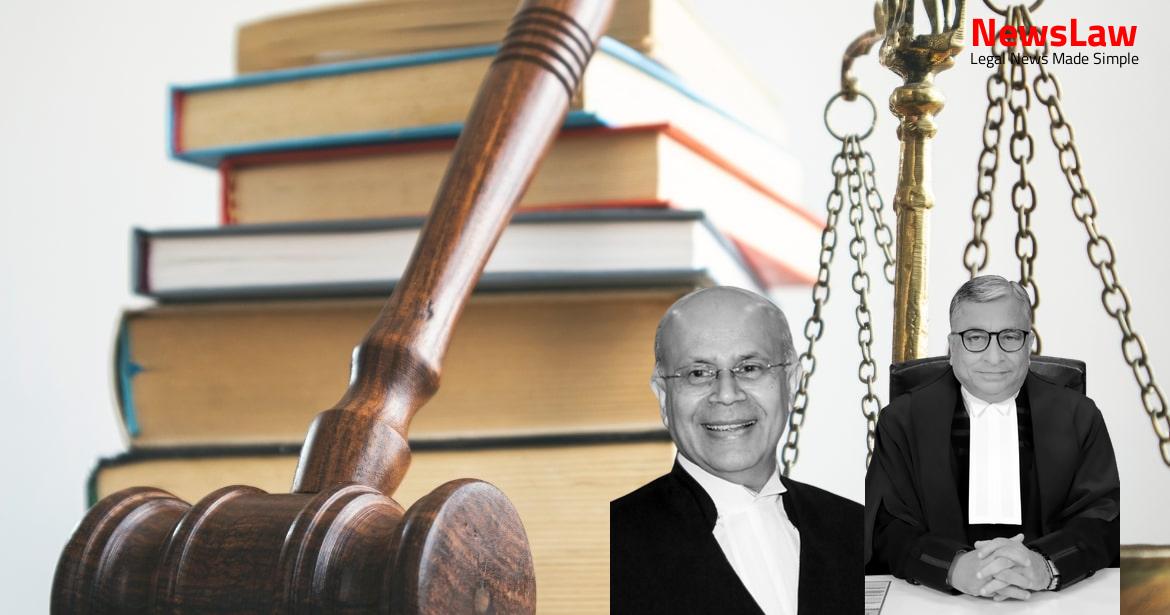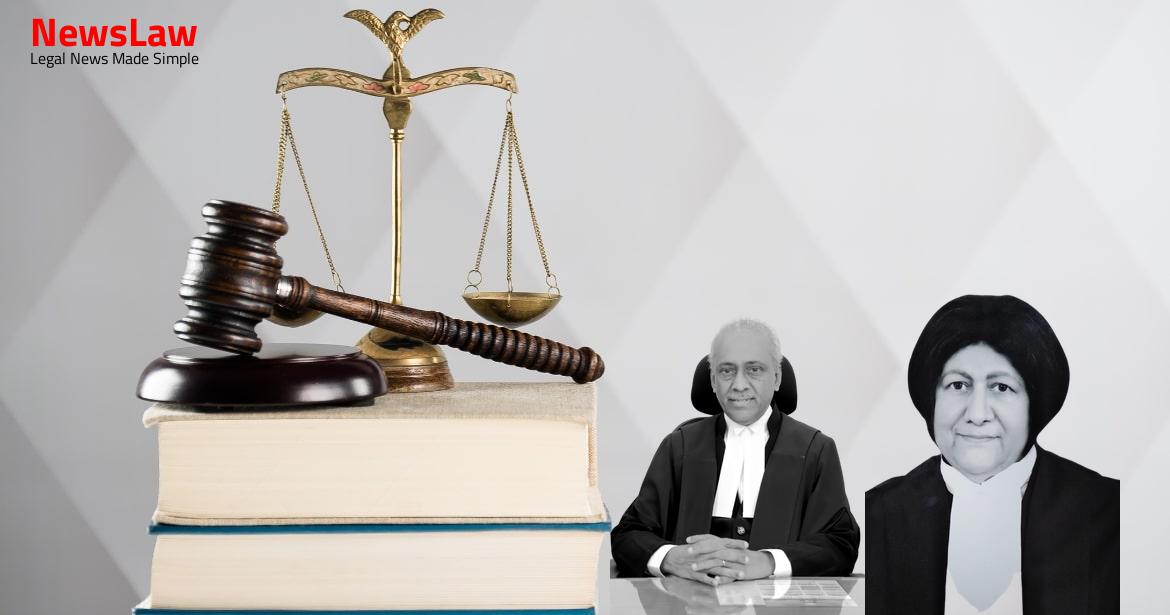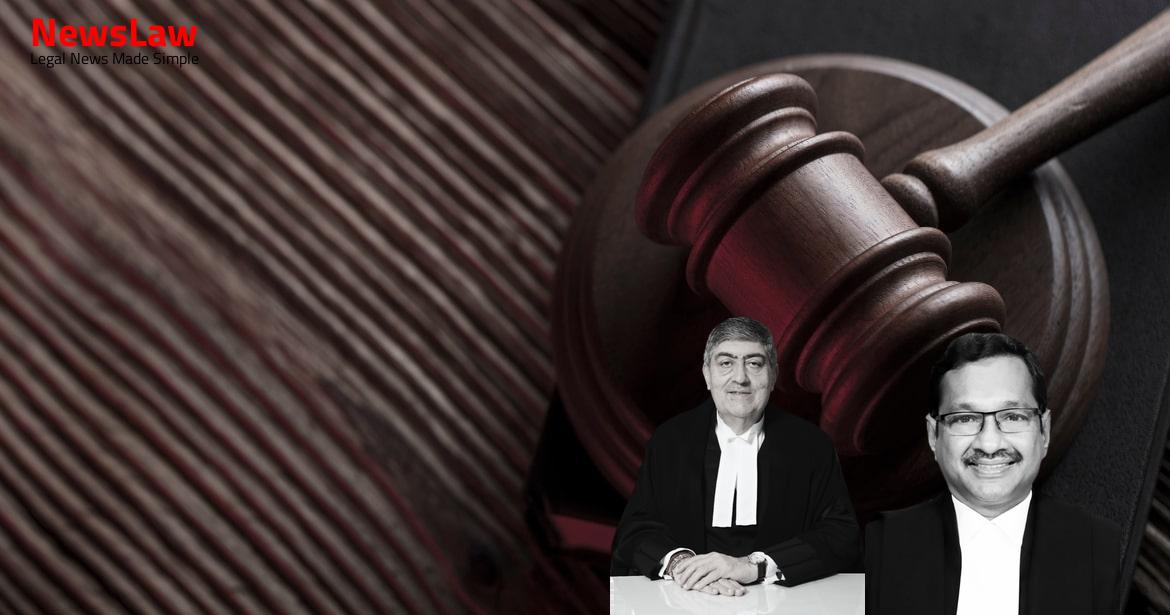The Supreme Court of India has delivered a significant judgement concerning the settlement and arbitration disputes between SDJV and WAPCOSL. The ruling addresses complex legal issues related to contract agreements, arbitration clauses, and the validity of settlements in commercial disputes. This case has far-reaching implications for dispute resolution practices in the construction industry and beyond.
Facts
- SSPPL derived authority from clause 20.6 of CoPA read with enabling terms in the JVA and FIDIC.
- Order set aside by the court and parties were referred back to the High Court for reconsideration.
- High Court allowed the arbitration petition and appointed a sole arbitrator, contrary to three arbitrators envisaged in CoPA.
- High Court opined that the arbitration agreement between SDJV and WAPCOSL was still in force.
- Despite AoA execution, High Court noted SSPPL’s authority to represent SDJV based on shareholdings.
- High Court impressed by SSPPL’s majority shareholding and allowed arbitration petition for dispute resolution.
- SDJV, formed by SSPPL and AIL, was awarded a tender for a project, leading to a dispute between the JV partners.
- AIL filed a petition under Section 9 of the Arbitration Act, directing WAPCOSL to deposit the amount payable to SDJV with the High Court Registrar.
- High Court of Delhi appointed a sole arbitrator for AIL and SSPPL inter se disputes.
- AIL revoked the PoA executed in favor of SSPPL, citing reasons for delayed construction initiation and non-compliance with court rules.
- The Contract Agreement amount was increased from Rs. 253.84 Crores to Rs. 872.67 Crores based on SDJV’s representations.
- The AoA, signed between SDJV and WAPCOSL for revised rates, led to further disagreements and court proceedings.
- Arbitration was invoked by SSPPL unilaterally, contested by WAPCOSL on grounds of lack of authority by SSPPL.
- HPC recommended revised rates for eight items, leading to impleadment of AIL in the arbitration proceedings and a stay order by the court.
- Despite inauguration of the Dam project, arbitration disputes and disagreements over rates and authority continued between the parties.
- WAPCOSL filed a Special Leave Petition in response to the court-appointed arbitrator’s decision.
Also Read: Balancing Justice: Case Summary of C.P. No. 16/2017
Arguments
- Learned Senior Counsel Mr. Sachin Datta appeared for SDJV (respondent No.1)
- The court considered the arguments presented by all counsels
- Two principal issues were identified for resolution in the judgment
Also Read: Judgment by Supreme Court of India in M/s. Bhilwara Processors Ltd. vs. Department of Central Excise
Analysis
- The Arbitration Agreement in the Contract Agreement was superseded by the terms of the Amendment of Agreement (AoA) dated 09.06.2015.
- Clause 1.2 and 1.3 of the AoA clearly state that all pending claims of the contractor were buried, and there would be no arbitration for settlement of claims except for force majeure claims.
- The parties, by executing the AoA, agreed to resolve all disputes through settlement of disputes and arbitration as specified in the AoA.
- The Technical Committee, constituted under the AoA, does not imply a waiver of the terms and conditions of the AoA, including the bar on future claims and arbitration.
- The AoA was executed in good faith after the substantial completion of the project, and the agreed terms were adhered to by all parties involved.
- Any claims raised post-execution of the AoA by the contractor were to be governed by the AoA terms, and any inconsistency with the original Contract Agreement would be resolved in favor of the AoA terms.
- The AoA effectively nullified the arbitration clause in the original Contract Agreement, and any reliance on the old arbitration agreement by the Joint Venture was untenable.
- The AoA included revised rates for major items of works and hydro-mechanical works, and the parties voluntarily agreed to the new arrangement, acknowledging the supersession of the old arbitration agreement.
- Section 62 of the Contract Act allows parties to agree to substitute, rescind, or alter a contract without performance of the original contract.
- Once a huge sum claim is settled with a discharge voucher, the contractor cannot later resurrect the claim or seek arbitration.
- Case law in Damodar Valley Corporation vs K. K. Kar supports the principle that parties can terminate or alter a contract, extinguishing the arbitration clause.
- In National Insurance Company Limited vs Boghara Polyfab Private Limited, the court clarified situations when claims are arbitrable or not.
- The Nathani Steels Ltd. v. Associated Constructions case highlights that parties must abide by settlements unless properly set aside; they cannot later invoke the arbitration clause dependent on the perished contract.
- The sanctity of contract must be upheld, including settlements which are a form of contract.
- If a dispute is settled and payments are made according to the settlement, one party cannot unilaterally question the settlement on the grounds of mistake.
- It is not permissible for a party to benefit from a settlement and then claim it as void due to mistake without setting aside the settlement.
- The High Court was incorrect in allowing the respondent to treat the settlement as non-existent and invoke the Arbitration clause.
Also Read: Agarwal v. Family Court: Resolving Document Production Dispute
Decision
- Negotiations held for settlement of disputed claims resulted in a written agreement settling all pending claims
- Claimant agreed to settlement of claim without any threat, coercion, or compulsion
- Accord and satisfaction binding and valid, no subsequent claim or arbitration reference allowed
- Option available for parties to take recourse to other remedies inter se
- Rejection of Arbitration Petition does not impede parties from pursuing other remedies in accordance with law
- No further dispute can be referred to arbitration after settlement
- High Court judgment set aside, Arbitration Petition filed by claimant dismissed
- All other issues and contentions left open for determination in appropriate proceedings
- Appeals allowed with no order as to costs, all pending applications disposed of
- Admitted or undisputed claims to be paid, contract discharged by accord and satisfaction
- After discharge of contract, no contract or dispute remains for consideration, appeals succeed
Case Title: WAPCOS LTD. Vs. SALMA DAM JOINT VENTURE
Case Number: C.A. No.-008595-008595 / 2019



